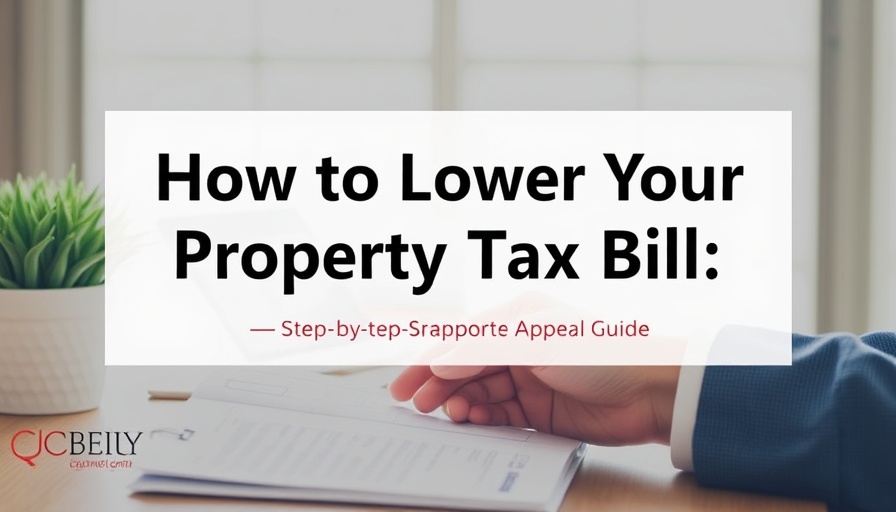
Understanding Your Property Tax Bill
For homeowners in New Jersey and across the U.S., the burden of property taxes often feels heavy and opaque. Understanding the nuances of your property tax assessment is the first step toward advocating for a fairer bill. Property taxes primarily fund local services, such as public schools, police, and fire services, but the calculations can sometimes seem arbitrary and inconsistent. By educating yourself about how your home's value is determined, you can better prepare an appeal against any perceived inaccuracies.
Why Appeal Your Property Taxes?
Many homeowners are unaware that they have the right to challenge their property assessment if they believe it is incorrect. With the right approach, you can lower your property tax bill significantly. For instance, if your property value is overestimated, you might miss out on an opportunity to save hundreds or even thousands of dollars each year. A successful appeal not only lightens your immediate financial burden but can also contribute to better budgeting practices going forward.
Common Misconceptions About Property Tax Appeal
One common misconception is that appealing your property taxes is a daunting process meant only for those with special expertise. However, this couldn't be further from the truth. With a bit of research and organization, anyone can effectively file an appeal. Additionally, some homeowners believe that an appeal will automatically invite scrutiny into their finances. The reality is that the process is designed to be straightforward, bolstered by clear legal guidelines to protect your rights as a homeowner.
Gathering Evidence: The Importance of Documentation
To support your case, compiling the right documents is crucial. Consider gathering recent sale prices of comparable properties in your area, photographs demonstrating any imperfections in your own home, and even any prior appraisals that could showcase discrepancies. This documentation forms the backbone of your appeal and allows for a compelling argument against inflated property values.
Step-by-Step Guide to Filing Your Appeal
Start by checking the appeal deadlines and filing requirements for your locality. These details may vary, so it’s essential to consult your local tax assessor’s office to understand the specifics. Generally, the process includes filling out the appropriate paperwork, submitting your evidence, and attending a hearing where you can voice your concerns. It sounds straightforward, but given the impact on your personal finances, being prepared is key!
Reaching Financial Goals Through Tax Savings
Lowering your property tax bill has long-term benefits that resonate beyond immediate savings. Allocating those extra funds toward debt reduction or investing in your retirement planning can accelerate your journey toward financial stability. Every dollar saved can be a step toward reaching your broader financial goals. Imagine diverting that money to boost income opportunities, like starting a side business or investing in further education!
Local Perspectives: Community Insights
Engaging with others in your community who have successfully appealed their taxes can provide valuable insights. Consider attending local finance workshops or community meetings, where stories can be shared, and strategies discussed. These grassroots connections can inspire confidence and cultivate effective budgeting habits, as residents band together to navigate these financial challenges.
Final Thoughts: Taking Control of Your Finances
Understanding your property tax bill and taking the initiative to appeal can significantly enhance your financial wellness. Beyond the money saved, the empowerment that comes from taking control of your financial situation can boost your confidence in managing personal finances and planning for the future. So, gather your documents, educate yourself on the appeal process, and don’t shy away from advocating for yourself!
Ready to take action? Start by reviewing your property tax bill today and determine if an appeal is the right move for you. Take control of your finances and work towards your financial goals!
 Add Row
Add Row  Add
Add 




 Add Row
Add Row 


 Add
Add
Write A Comment